Since 1995, EMDRIA has grown from a small group of visionaries into a global leader in EMDR therapy education, research, and advocacy. Explore our timeline to see key moments in EMDRIA’s journey alongside major milestones in EMDR therapy.
1987
EMDR THERAPY MILESTONE

Discovery of EMDR Therapy
Francine Shapiro discovers the therapeutic effects of eye movement desensitization, laying the foundation for what would become EMDR therapy.
Image: Francine Shapiro, 2011, via EMDR Institute
1989
EMDR THERAPY MILESTONE
 First Controlled Study Published
First Controlled Study Published
Shapiro publishes the first controlled research study demonstrating EMDR’s effectiveness in reducing traumatic stress symptoms.
Image: Cover of Traumatic Stress Journal, 1989, via wiley.com
1995
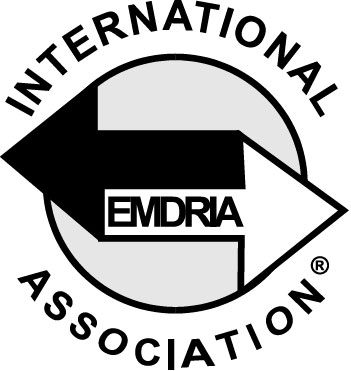 EMDRIA Founded
EMDRIA Founded
The EMDR International Association (EMDRIA) is established to promote the highest standards for EMDR therapy training, practice, and research. Membership began with 473 charter members.
Image: Logo from 1995–2005
EMDR THERAPY MILESTONE
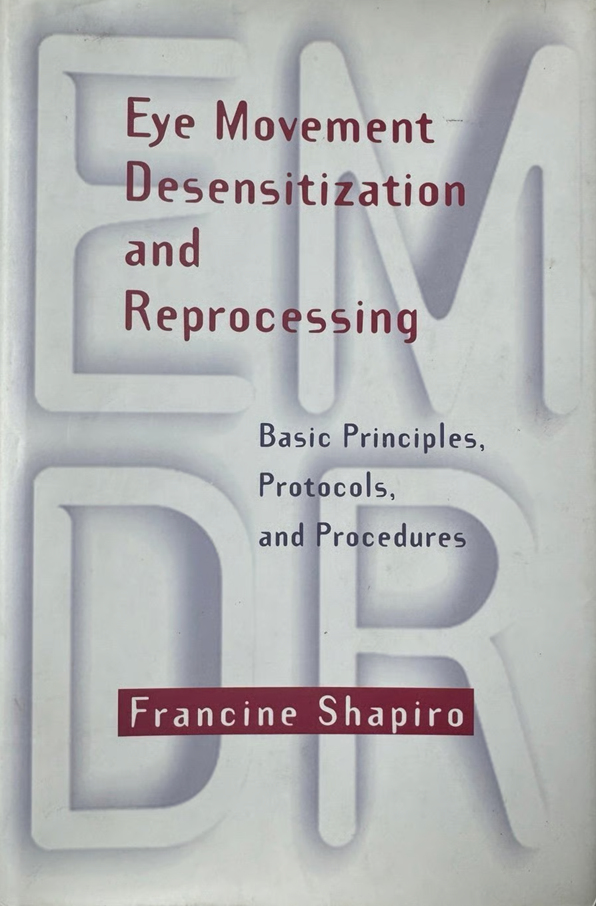
Seminal EMDR Therapy Handbook Published
Francine Shapiro releases Eye Movement Desensitization and Reprocessing: Basic Principles, Protocols, and Procedures, formalizing the structured EMDR therapy model.
Image: First Edition Book Cover, 1995, via thriftbooks.com
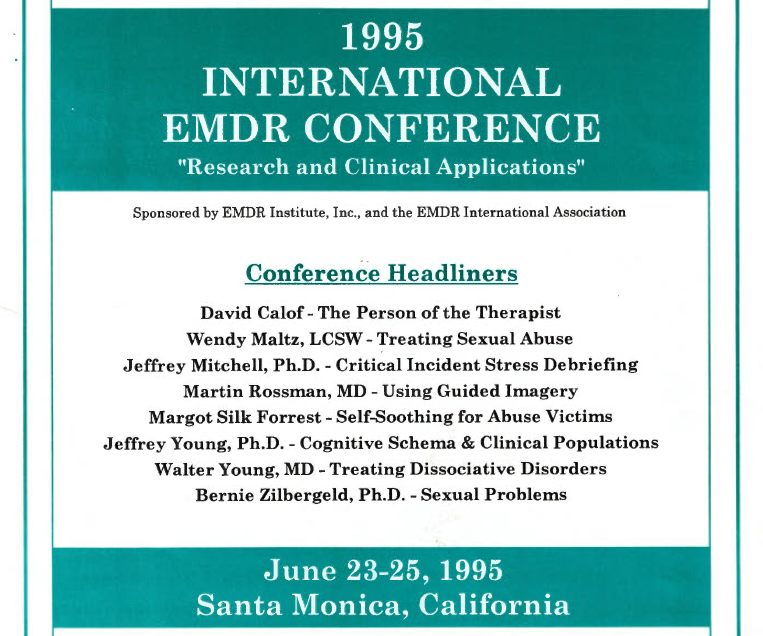 First Conference Held
First Conference Held
EMDRIA's first conference was held in 1995 in Santa Monica, California. This inaugural event marked a significant milestone in the organization's history, bringing together clinicians and researchers to share knowledge and advance the practice of EMDR therapy.
Image: Portion of EMDR Conference Brochure Cover, 1995
1997
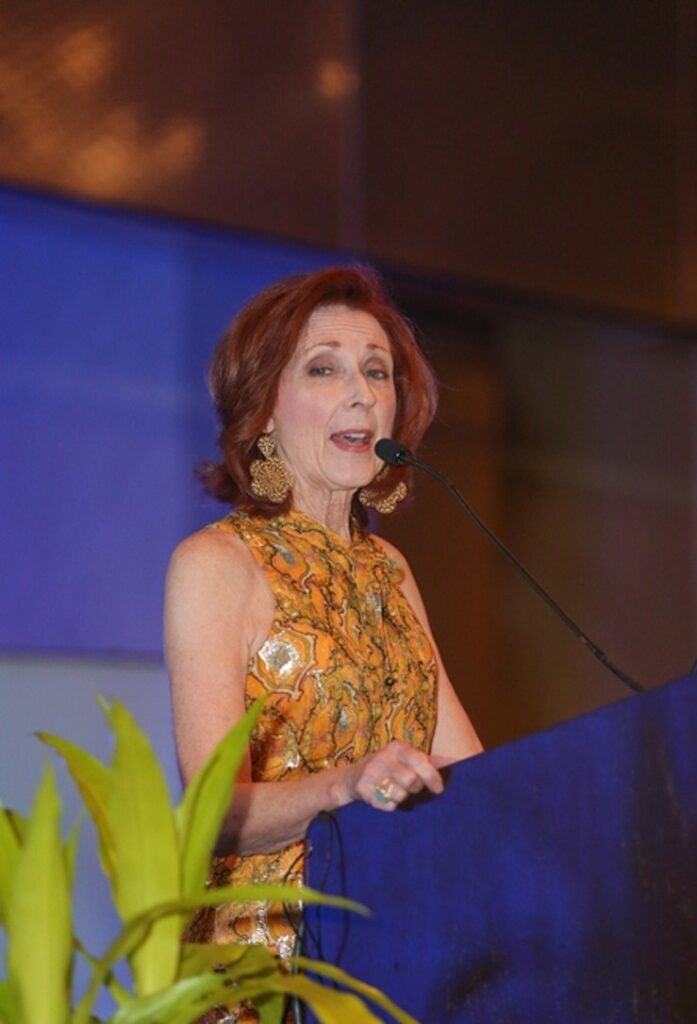 First Executive Director
First Executive Director
EMDRIA was originally managed by an Association Management Company in Arizona from 1995 through 1996. In 1997, the organization hired its first Executive Director (part-time), Carol York. York had a private practice in Austin, Texas, and Austin became the organization’s first home for its 3 staff members.
Image: Carol York
Nonprofit Transition
EMDRIA transitions from a 501(c)(3) to a 501(c)(6) allows for better alignment of a credentialing pathway for EMDRIA members.
1998
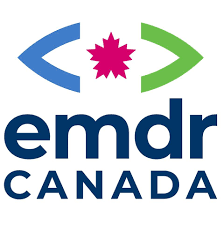 EMDR Canada Joins EMDRIA
EMDR Canada Joins EMDRIA
EMDR Canada was first conceived in 1995 as the Canadian branch of EMDRIA. In 1998, it incorporated as an independent organization and officially became an international affiliate of EMDRIA, fostering strong collaboration and resource sharing.
Image: EMDR Canada Logo, 2025, via emdrcanada.ca
1999
Certification & Credit Program Begins
EMDRIA introduces official certification and training programs, including EMDRIA credit programs, EMDR Certified Therapists and Approved Consultants credentials, ensuring quality and consistency in EMDR therapy education worldwide.
2000
EMDR THERAPY MILESTONE
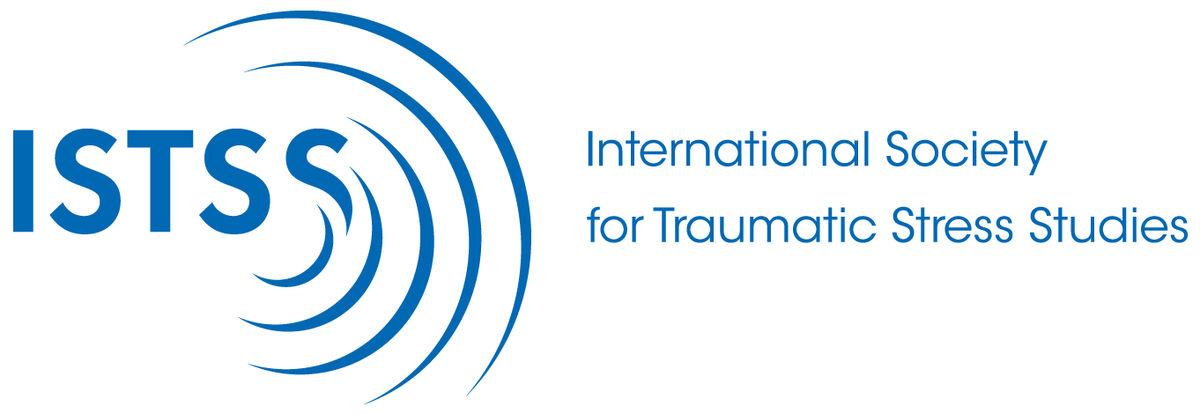 ISTSS Recognition
ISTSS Recognition
The Practice Guidelines of the International Society for Traumatic Stress Studies (ISTSS) list EMDR as an efficacious treatment for PTSD.
Image: ISTSS Logo, 2025, via Wikimedia Commons
2001
Launch of Find an EMDR Therapist® Directory
EMDRIA introduces the first iteration of what is now the Find an EMDR Therapist® Directory, an online resource enabling the public to locate EMDRIA members trained in EMDR therapy. The directory offers search options by location, name, and other criteria, facilitating access to qualified therapists worldwide.
2004
 Second Executive Director
Second Executive Director
EMDRIA hires its first full-time Executive Director, Scott Blech (2004-2012) and grows to 6 staff members.
Image: Scott Blech
EMDR THERAPY MILESTONE
APA Recognizes EMDR as Evidence-Based
The American Psychiatric Association includes EMDR therapy as a recommended treatment for Post-Traumatic Stress Disorder (PTSD).
EMDR THERAPY MILESTONE
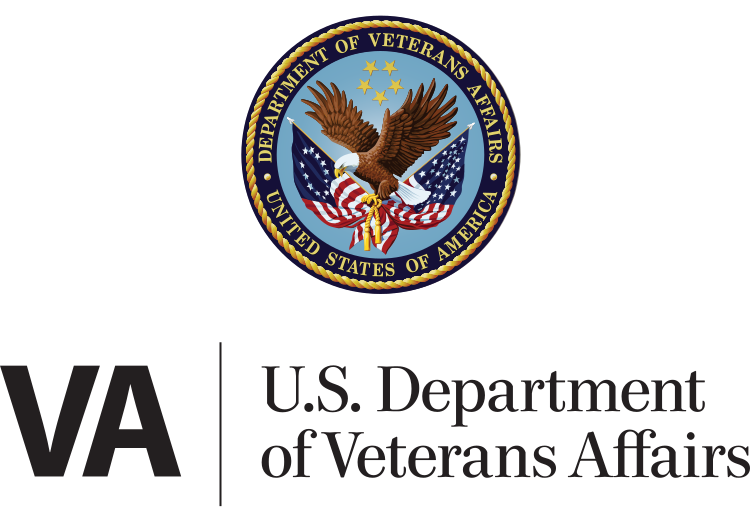 VA and DoD Recognition
VA and DoD Recognition
EMDR is listed as a “strongly recommended” treatment for trauma by the U.S. Department of Veterans Affairs and the Department of Defense, marking a significant endorsement in veteran care.
Image: US Department of Veterans Affairs Logo, 2025, via Wikimedia Commons
2007
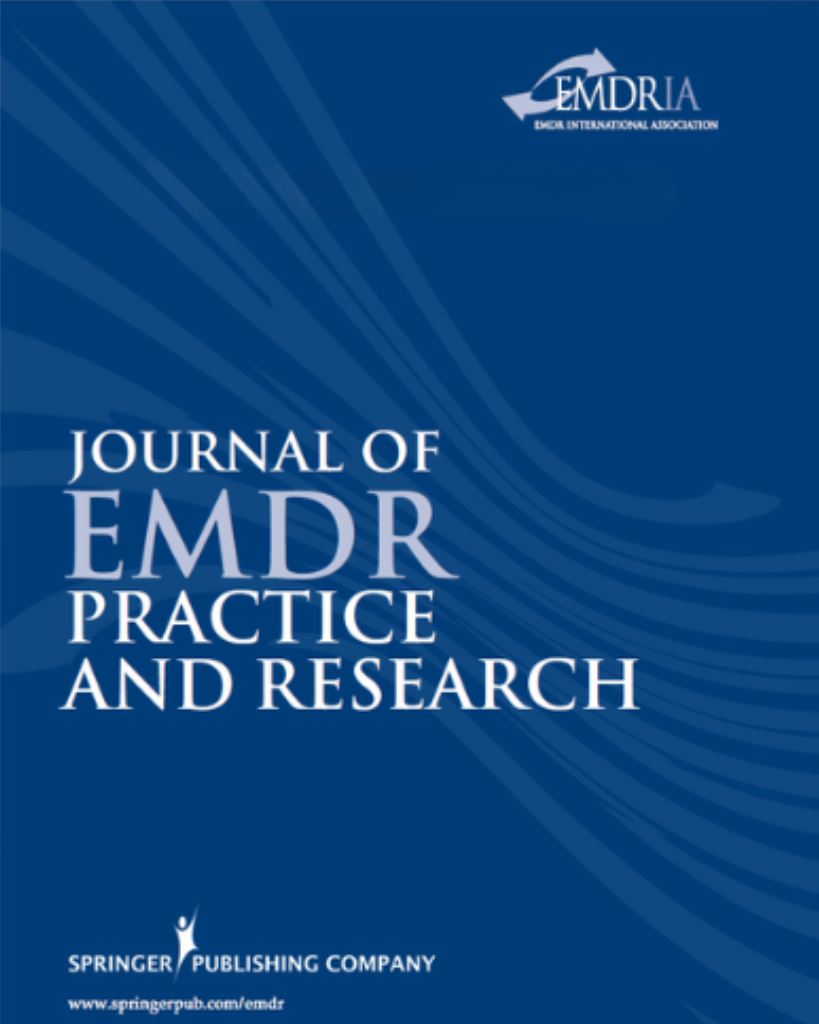 Journal of EMDR Practice and Research Published
Journal of EMDR Practice and Research Published
EMDRIA launches the Journal of EMDR Practice and Research (JEMDR), the first peer-reviewed journal dedicated to advancing the theory, research, and clinical practice of EMDR therapy. The journal quickly becomes an essential platform for disseminating evidence-based findings and fostering scholarly dialogue within the global EMDR community. While EMDRIA funds JEMDR, the content remains editorially independent.
Dr. Louise Maxfield served as Editor-in-Chief from its founding in 2007 until 2021, helping to establish the journal’s high standards for scientific rigor and editorial excellence during its formative years.
Image: JEMDR Cover from 2007-2017, via springer.com
Basic Training Enhancements
EMDRIA implements new curriculum requirements for basic EMDR training.
2012
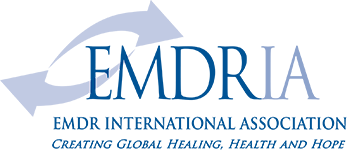 Membership Milestone
Membership Milestone
EMDRIA’s total membership grows to 5,000 members, reflecting the growing demand for trauma-informed care and EMDR therapy across the U.S. and beyond.
Image: Logo from 2006–2016
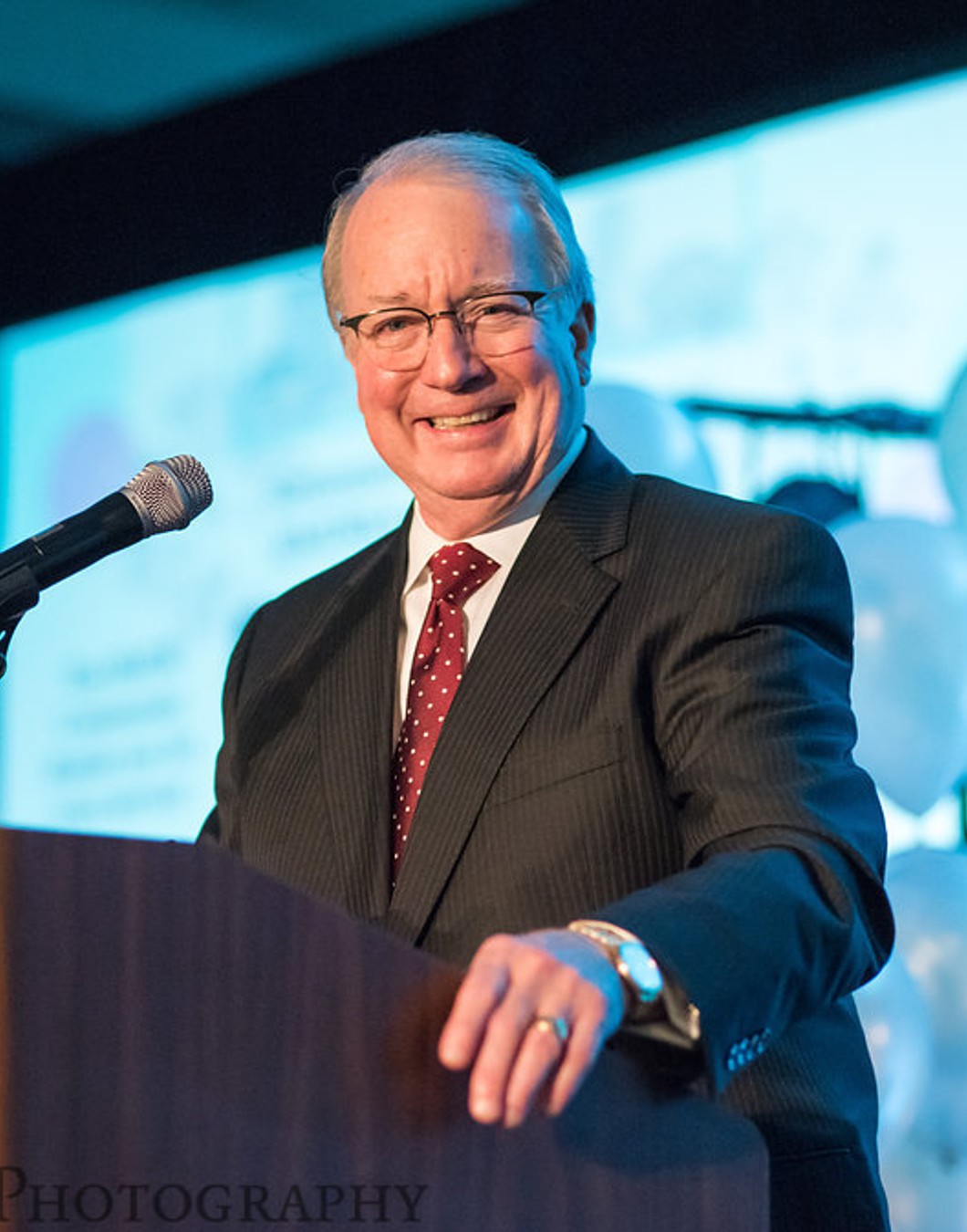 Third Executive Director
Third Executive Director
EMDRIA hires its third Executive Director, Mark Doherty (2012-2017), and grows to 9 staff members.
Image: Mark Doherty
2013
EMDR THERAPY MILESTONE
WHO Endorses EMDR for PTSD
The World Health Organization formally recommends EMDR therapy as an effective treatment for PTSD in its international guidelines.
2015
OnDemand Debuts
To expand continuing education access, EMDRIA introduces OnDemand, offering flexible, anytime learning opportunities for EMDR therapists worldwide.
Image: OnDemand Education Logo, 2024
2016
Online Community Begins
EMDRIA introduces its Online Community, creating a dedicated space for EMDR therapists to connect, share insights, and collaborate on therapy topics.
2017
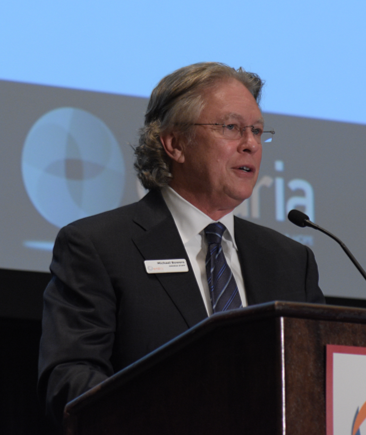 Fourth Executive Director
Fourth Executive Director
The board of directors hired Michael Bowers as EMDRIA’s fourth executive director (2017-Present), and since that time, the staff has grown from 9 to 15.
Image: Michael Bowers
2018
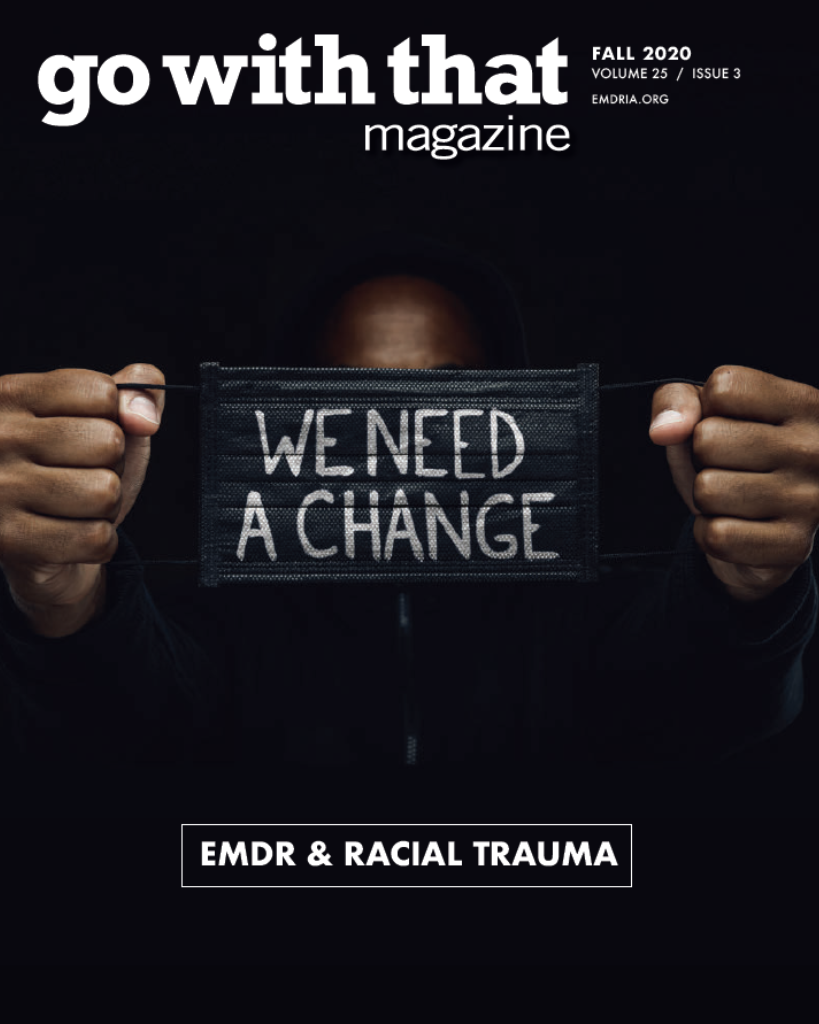 Go With That Magazine® Published
Go With That Magazine® Published
EMDRIA debuts Go With That Magazine®, its flagship member publication focused on practical, clinically relevant EMDR topics. Over the years, the magazine has earned industry awards for excellence in association publishing.
A landmark issue in Fall 2020 spotlighted the role of EMDR therapy in addressing racial trauma, marking a pivotal contribution to the field's dialogue on diversity, equity, and inclusion.
Image: Go With That Magazine® Cover, Fall 2020
2019
 25th Anniversary Celebration
25th Anniversary Celebration
EMDRIA marks 25 years of leadership in trauma therapy with special conference events, member spotlights, and a renewed vision for global impact. The conference saw a record attendance of 1,430 in-person attendees and 240 virtual attendees. It marked both achievement and loss as we celebrated the 30th anniversary of EMDR therapy and the life of EMDR’s founder, Francine Shapiro, who passed away this year.
Image: 25th Anniversary Logo, 2019
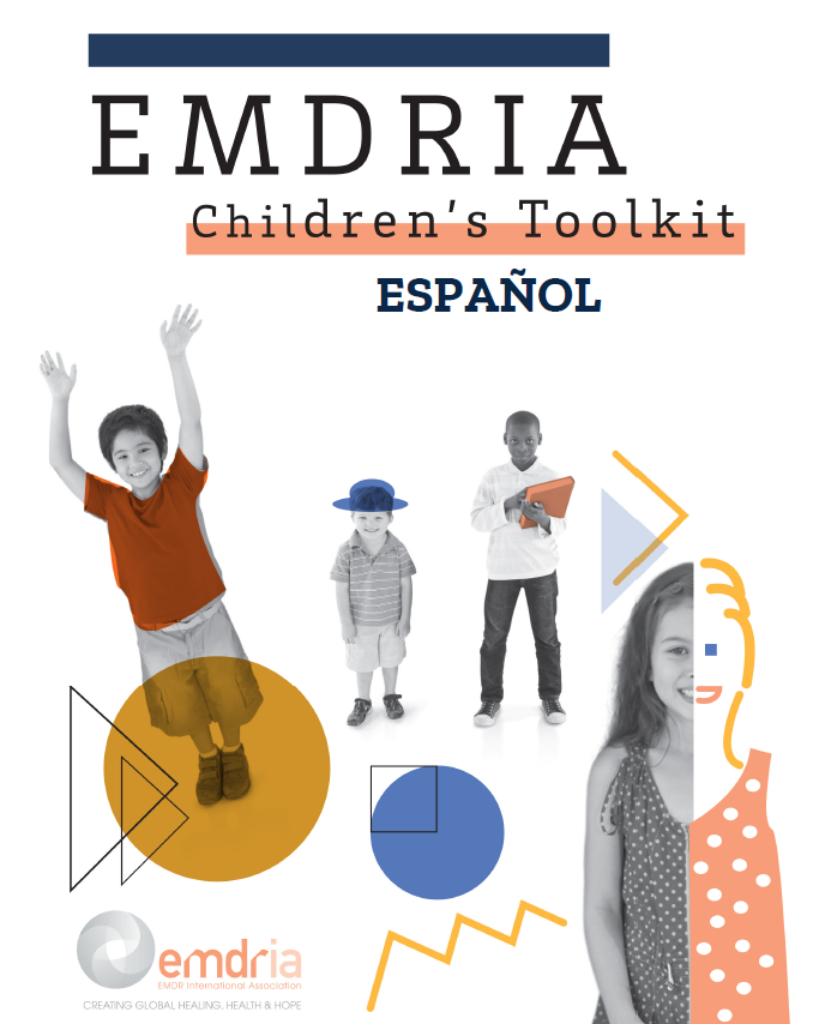 Launch of Toolkits & Practice Resources
Launch of Toolkits & Practice Resources
EMDRIA introduces its Toolkits & Practice Resources, a curated collection of topic-specific toolkits covering areas such as the 8-phase model, addiction, childhood trauma, chronic pain, depression, military work, consultation, and more.
Many toolkits also include client-facing materials and are available in both English and Spanish—bolstering clinical support and professional development.
Image: Kit de los Niños y Niñas, 2021
 Start of Focal Point Blog
Start of Focal Point Blog
EMDRIA debuts the public-facing Focal Point Blog, showcasing member insights, best practices, and commentary on EMDR-related topics and awareness initiatives. The blog has since earned the Software and Information Industry Association “Excel” award.
Image: Excel Award Winner Badge, 2022
2020
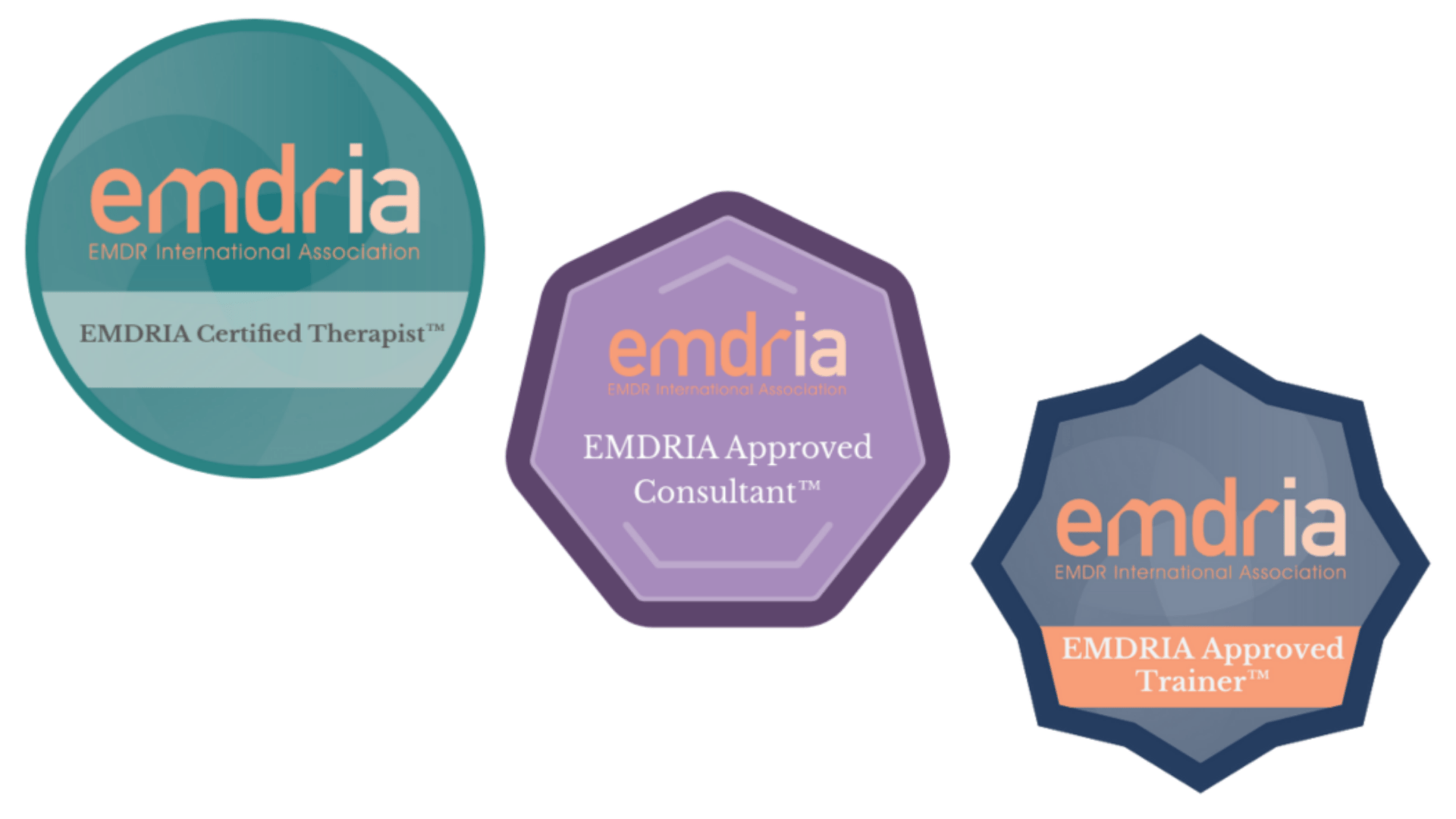 Digital Badges for EMDRIA Credentials
Digital Badges for EMDRIA Credentials
EMDRIA launches digital badges in response to requests to celebrate, validate, and share EMDRIA credentials.
Image: Three digital badges offered, 2025
Membership Growth
Membership grows to 10,000.
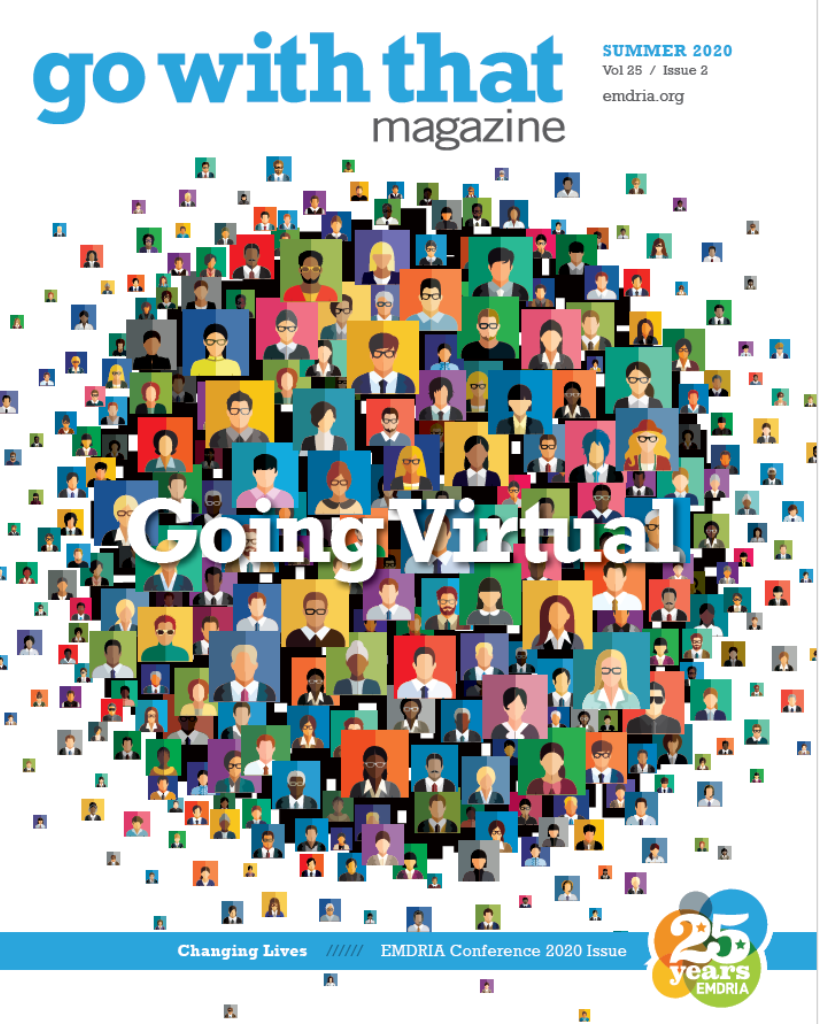 Pandemic Adaptations
Pandemic Adaptations
In response to COVID-19, EMDRIA rapidly pivots to virtual trainings and telehealth support, ensuring members can continue providing critical care to clients.
Image: Go With That Magazine issue on Going Virtual, Summer 2020
2021
 First Spanish-Language Conference Track Offered
First Spanish-Language Conference Track Offered
EMDRIA debuts its first dedicated Spanish-language track at the annual conference, expanding access and engagement for Spanish-speaking EMDR professionals worldwide.
Image: Spanish Session Announcements from Conference, 2021
2022
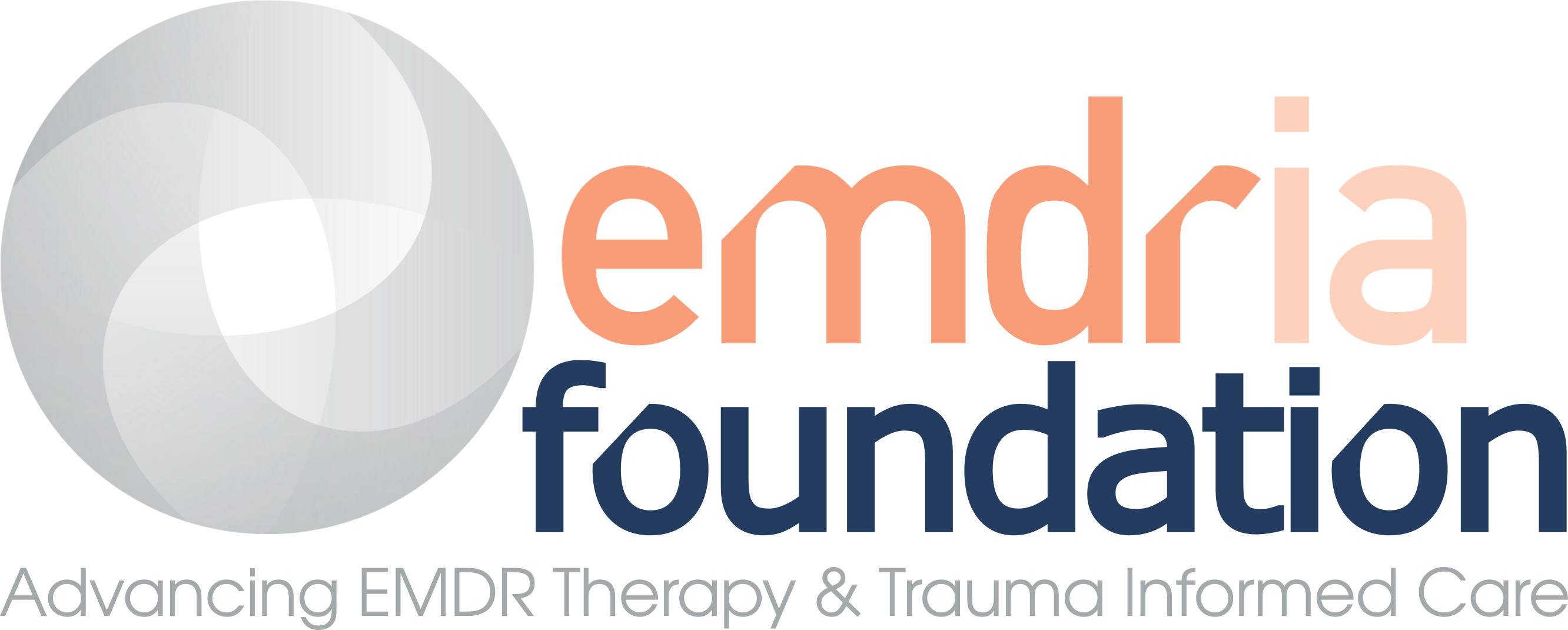 EMDRIA Foundation
EMDRIA Foundation
The EMDRIA Foundation is organized to promote, foster, and preserve education, science, and knowledge regarding EMDR therapy and trauma-informed care.
Image: EMDRIA Foundation Logo, 2023
Commitment to Inclusion
The EMDRIA Foundation launches its Racial Equity Support Initiative (RESI) to increase the number of BIPOC individuals seeking credentials in EMDR therapy.
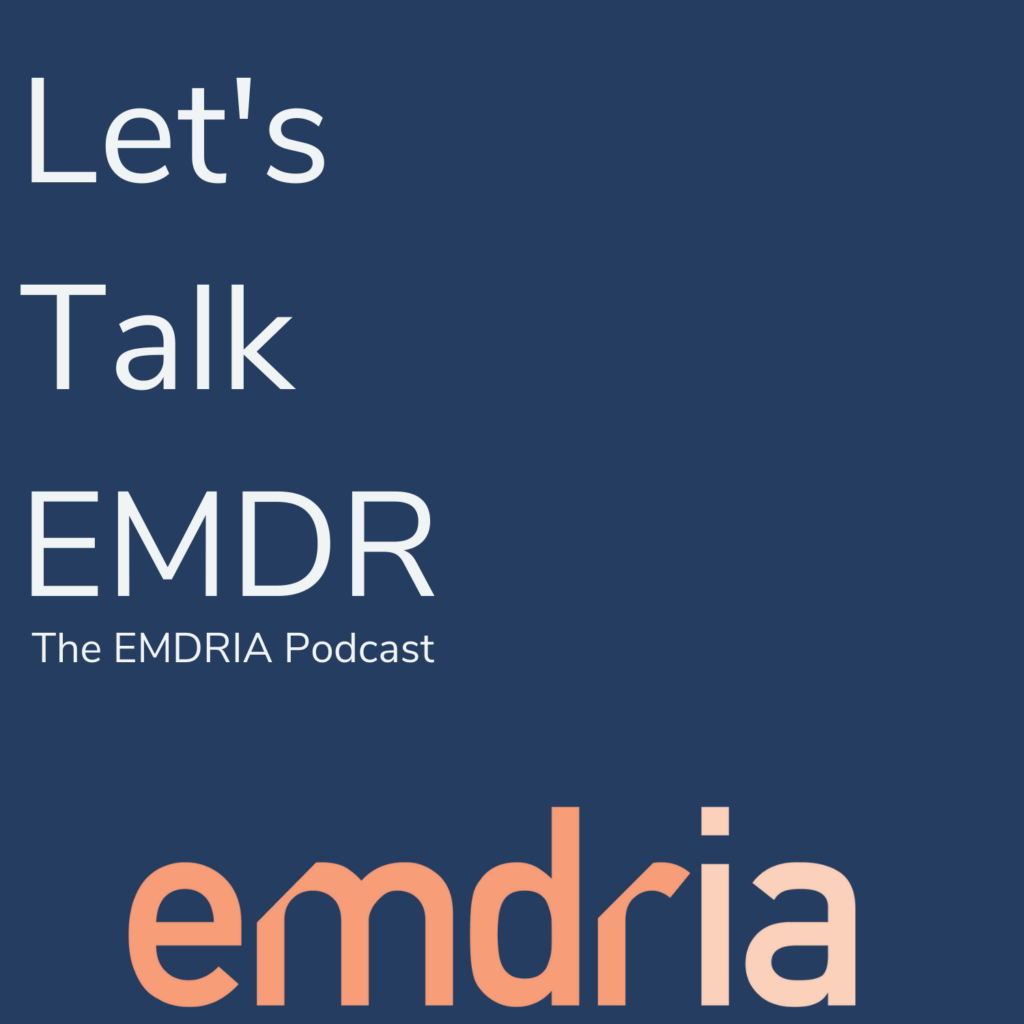 Let’s Talk EMDR Podcast Airs
Let’s Talk EMDR Podcast Airs
EMDRIA debuts its "Let's Talk EMDR" podcast in June 2022, offering bimonthly episodes featuring clinicians, trainers, and researchers discussing EMDR protocols, innovations, and clinical case applications.
 Consultant Day & Trainer Day Introduced
Consultant Day & Trainer Day Introduced
EMDRIA launches Consultant Day and Trainer Day, providing specialized opportunities for advanced clinicians and educators to deepen their expertise and network within the EMDR community.
Image: Trainer Day Event Banner, 2023
2023
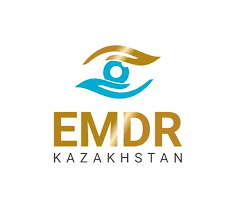 EMDR Kazakhstan Joins EMDRIA
EMDR Kazakhstan Joins EMDRIA
As part of EMDRIA’s growing International Affiliate Program, EMDR Kazakhstan becomes a new member, strengthening worldwide connections in EMDR therapy.
Image: EMDR Kazakhstan Logo, 2025, via emdr.kz
Membership Milestone
Membership numbers reach 15,000.
Virtual Summit Starts
EMDRIA debuts its Virtual Summit, featuring invited expert speakers offering advanced clinical training and interactive workshops to EMDR therapists worldwide in a fully virtual format (although the summit was offered in-person once, in Bellevue Washington in 2024).
Image: Virtual Summit Logo, 2023
2024
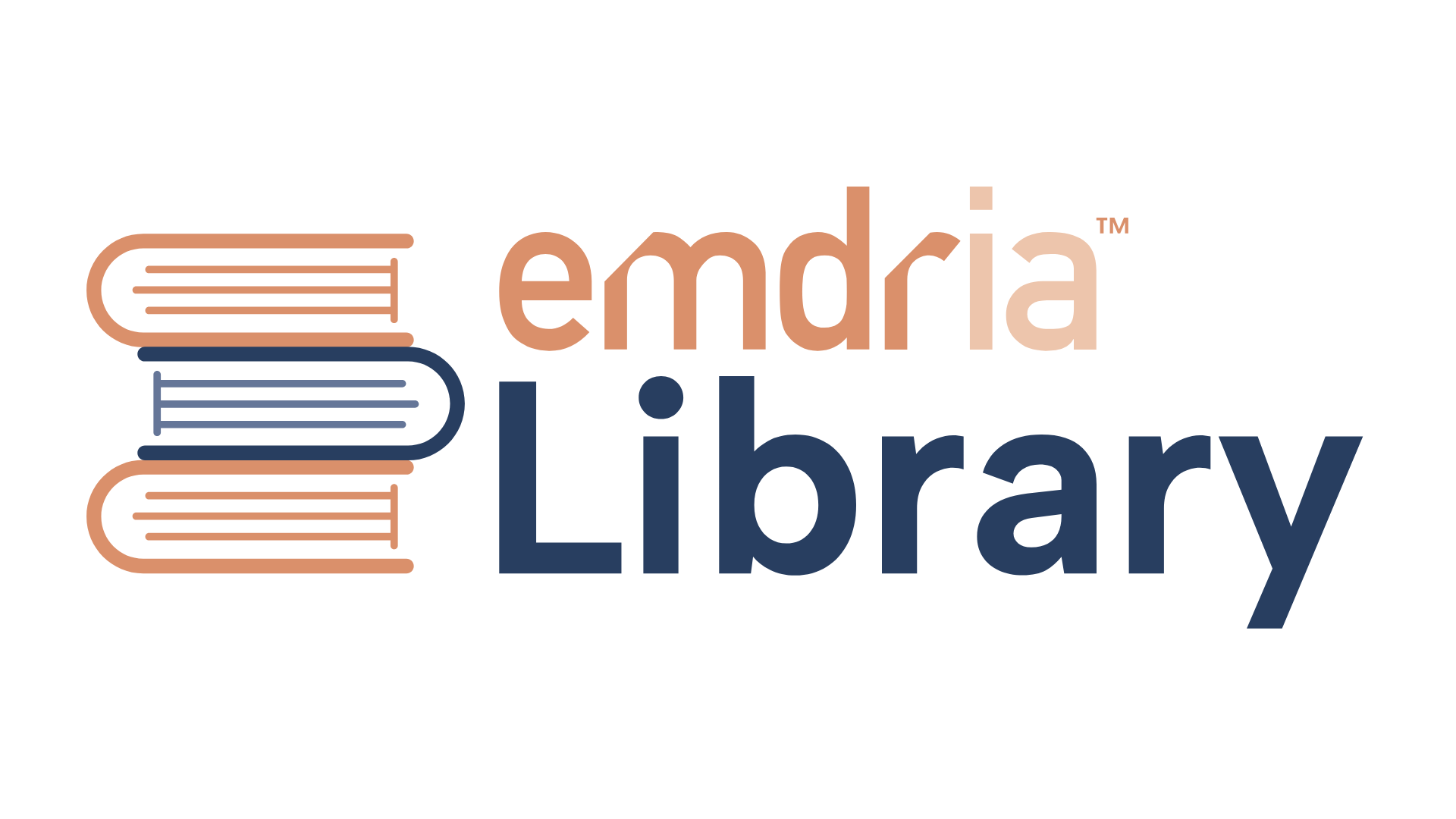 Launch of the EMDRIA Library
Launch of the EMDRIA Library
The EMDRIA Library debuts, offering members an essential digital hub for accessing research, resources, and practice tools.
Image: EMDRIA Library Logo, 2025
2025

JEMDR Publishing Transition
The Journal of EMDR Practice and Research (JEMDR) is now published through AAAS’s Science Partner Journal (SPJ) program, part of the world-renowned publisher of Science and other high-impact scientific journals.
Image: JEMDR Cover, 2025
 Glossary of EMDR Terms
Glossary of EMDR Terms
EMDRIA introduces the Glossary of EMDR Terms, a comprehensive, searchable resource defining specialized language used in EMDR therapy. This glossary serves as a foundational tool for clinicians, researchers, and educators, ensuring consistent terminology across training, practice, and research.
Image: Glossary of EMDR Terms Logo, 2025
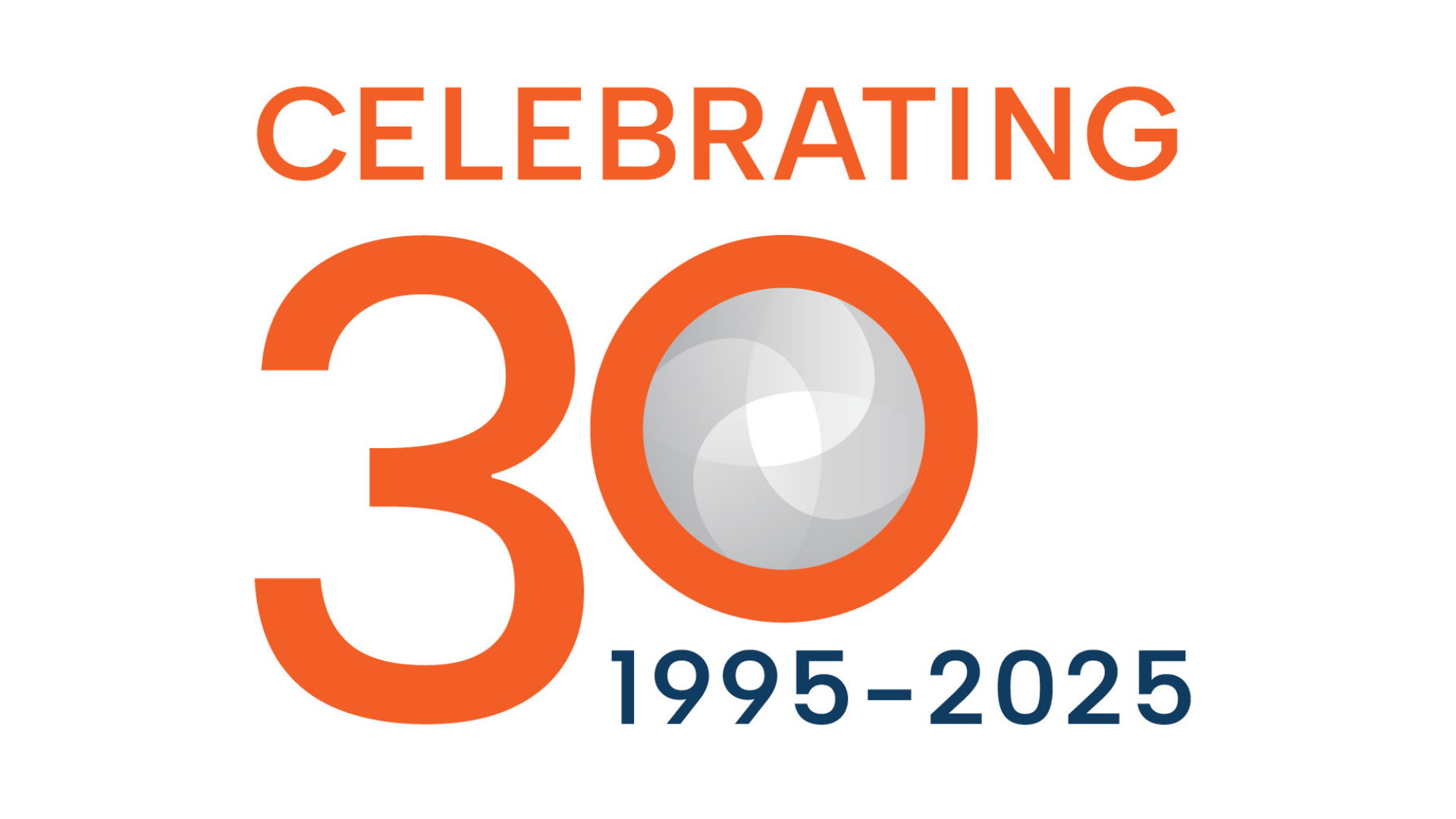 30 Years of EMDRIA
30 Years of EMDRIA
EMDRIA celebrates three decades of service, innovation, and global impact—empowering thousands of therapists and touching countless lives worldwide.
Image: EMDRIA 30th Anniversary Logo, 2025
Sources
Celebrating 25 Years of EMDRIA. (2020, June). Go With That Magazine, 25(2), 18-25. https://www.emdria.org/magazine/celebrating-25-years-of-emdria/
EMDRIA History (2024, July 12). Focal Point Blog. https://www.emdria.org/blog/emdria-history/
EMDR Therapy Beginnings: Francine Shapiro (2021, January 5). Focal Point Blog. https://www.emdria.org/blog/emdr-therapy-beginnings-francine-shapiro/
Farrell, D., & Rydberg, J. (2024). Dr. Louise Maxfield—A Memorial Former Editor-in-Chief of the Journal of EMDR Practice and Research. Journal of EMDR Practice and Research, 18(1), 2-4. https://doi.org/10.1891/EMDR-2024-0001
Francine Shapiro Library. (n.d.). Home page. https://francineshapirolibrary.omeka.net/
Maxfield, L. (2009). EMDR Milestones: The First 20 Years. Journal of EMDR Practice and Research, 3(4), 211–216. https://doi.org/10.1891/1933-3196.3.4.211
The History of EMDR Therapy: Discover the Milestones from Revolutionary Discovery to Global Impact (n.d.). EMDR Institute. https://www.emdr.com/history-of-emdr/
Date created: June 2025



